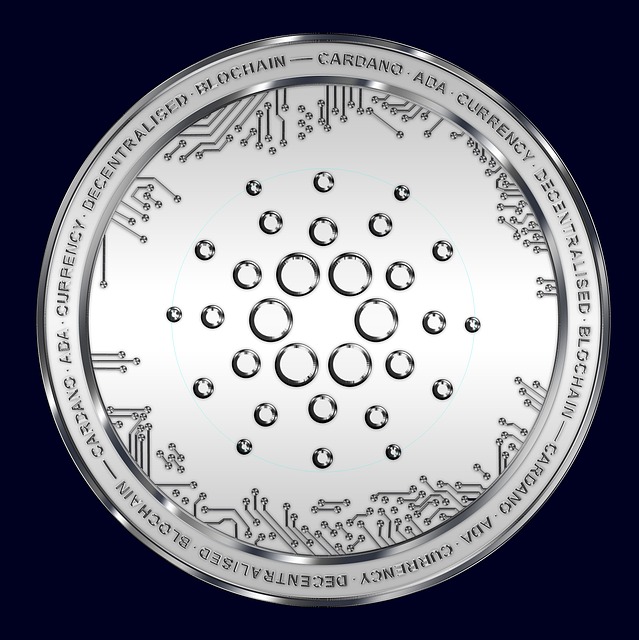
Cardano, a blockchain platform aiming for widespread adoption, faces scalability challenges as its user base grows. Its proof-of-stake mechanism struggles with transaction volume, making it less competitive compared to Ethereum. The Basho update introduces a new consensus mechanism that reduces block times and increases throughput, enabling Cardano to process more transactions per second. This advancement positions Cardano as a powerful decentralized platform for building dApps, solidifying its position in the blockchain space. With continuous improvements aimed at overcoming scalability hurdles, Cardano is poised to revolutionize interactions with decentralized applications.
“Cardano, a blockchain network aiming for widespread adoption, faces scalability challenges. In response, the recent Basho update introduces innovative solutions, marking a significant step forward. This article delves into Cardano’s scalability conundrum, dissects the transformative power of Basho, explores its key features, and peers into the future prospects of this Ethereum competitor. Uncover how these advancements position Cardano for enhanced performance and global reach.”
- Understanding Cardano's Scalability Challenges
- The Role of the Basho Update in Enhancing Scalability
- Key Features and Benefits of the Latest Implementation
- Future Prospects: What Lies Ahead for Cardano's Network?
Understanding Cardano's Scalability Challenges

Cardano, a blockchain platform aiming for widespread adoption, faces significant scalability challenges as its user base grows. With its proof-of-stake consensus mechanism designed for energy efficiency and security, Cardano struggles to handle an increasing number of transactions per second (TPS), making it less competitive compared to other blockchains like Ethereum. This issue is crucial as high transaction fees and slow processing times can deter users and limit the platform’s potential in real-world applications.
The core challenge lies in maintaining the network’s security while ensuring fast and cost-effective transactions. Cardano’s current solution involves off-chain scaling techniques, such as sidechains and rollups, to alleviate the main chain’s burden. The latest Basho update is a significant step towards addressing these scalability concerns by introducing optimizations and improvements that promise to enhance the platform’s overall performance and efficiency.
The Role of the Basho Update in Enhancing Scalability

The recent Basho update for Cardano marks a significant step forward in addressing one of the blockchain’s core challenges—scalability. This upgrade introduces a new consensus mechanism, which optimizes transaction processing by reducing block times and increasing throughput. By employing a more efficient proof-of-stake (PoS) protocol, Cardano can now handle a larger number of transactions per second, making it more scalable than ever before.
This update is pivotal in the context of Cardano’s long-term vision to become a decentralized, high-performance platform for various applications. With Basho, Cardano takes a significant leap towards fulfilling its promise as a game-changer in the blockchain space, offering developers and users a secure, fast, and cost-effective solution for building decentralized applications (dApps).
Key Features and Benefits of the Latest Implementation

The latest Basho update for Cardano introduces several key features aimed at enhancing scalability and performance. One of the standout benefits is the implementation of a new consensus mechanism, which promises to significantly reduce transaction times while maintaining the network’s security. This mechanism enables parallel processing, allowing for a more efficient validation of transactions, thereby increasing the overall throughput of the network.
Additionally, the update focuses on improving the user experience by introducing simplified smart contract deployment and management tools. Developers can now expect faster and easier integration of smart contracts, making Cardano an even more appealing choice for decentralized application (dApp) developers. These advancements position Cardano as a leading blockchain in the pursuit of scalability solutions, solidifying its place in the ever-evolving landscape of cryptocurrency and blockchain technology.
Future Prospects: What Lies Ahead for Cardano's Network?

The future of Cardano’s network looks promising, with ongoing developments and innovations aimed at addressing its scalability challenges. The recent Basho update is a significant step forward, demonstrating Cardano’s commitment to enhancing its performance. By implementing efficient consensus mechanisms and optimizing node configurations, the network aims to achieve higher transaction throughput while maintaining security and decentralization.
As Cardano continues to evolve, future prospects include improved user experience with faster transaction times and reduced fees, attracting more developers and users. The network’s ability to adapt and integrate new technologies will be crucial in staying ahead of the curve in the ever-competitive blockchain space. With a focus on sustainability and innovation, Cardano has the potential to become a leading force in the industry, reshaping the way we interact with decentralized applications.
The latest Basho update represents a significant step forward in Cardano’s journey towards addressing its scalability challenges. By focusing on off-chain solutions and enhancing on-chain efficiency, this implementation opens doors for faster transactions and increased throughput. Looking ahead, the future of the Cardano network seems promising, with ongoing innovations poised to solidify its position as a leading blockchain platform. These advancements are crucial in attracting developers and users, ensuring Cardano remains competitive in the ever-evolving crypto landscape.

